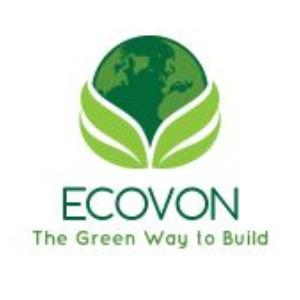Please find below the
Finalist Evaluation
Judges'' comments
I thought this was an interesting proposal, feasible and with potential for impact on the environment. However, I could not really connect it to the idea of achieving multiple SDGs
Very interesting idea, well presented and well-researched – however the proposal in its current formulation is quite place-based and narrow in terms of its ability to address multiple SDGs.Additional information on how the model could be replicated and relevant to other regions/ context would be helpful.
Semi-Finalist Evaluation
Judges'' ratings
| • | Novelty: | |
| • | Feasibility: | |
| • | Impact: | |
| • | Presentation: |
Judges'' comments
Judge 1: Try adding some more specific quantitative comparisons with wood rather than just stating this is better in various ways (eg how do we know "Our product is stronger and more durable, priced considerably less, and greener" [than wood] is true?). Link to some past CoLab proposals for synergies as per the call - maybe some of the ones that are about construction of houses for example? Mention the SDG's the project will help deliver on.
Judge 2: This proposal is very clearly presented and quite an interesting idea. I would suggest that the author(s) try to make a clearer connection to multiple SDGs and link to more existing Climate Co-lab proposals more clearly (that is, link to more than 2, and also make the explanations of the links more clearly). Right now, the proposal reads as a very clear business proposition that solves some problems in one location. But for this contest, I would really like to see systems-level approaches that address multiple issues/SDGs and could be expanded to other locations beyond the pilot. Good work so far team!
 Isaac Brenya Jan 23, 2018 07:06 | Proposal creator Physical and Mechanical properties of coconut husk board Coconut husk has the highest lignin content of any known plant and this helps the raw material to bind into a hard board without the addition of any damaging glue or binder. Due to its strength the board has the potential to be used for structural elements in buildings. It also has natural anti-fungal properties and burns three times slower than wood. The boards are developed by milling, steam pressing, and cooling the husks. They require no glue or resin to hold together. They absorb water without swelling and are flexible enough to bend without breaking: this makes them resistant to fire. The board material has been shown to exhibit excellent properties, which are comparable with or even superior to commercial wood based panels. Our product is stronger and more durable, priced considerably less, and greener.The obtained boards show very good mechanical properties (strength of 50 MPa and stiffness of5
Scalability and Application of the product The board material that is made from coconut husk can be used for all kinds of applications, for example, in the construction sector, such as wallboards, frames and similar. The material is intended for both local consumers and for export, for example, the furniture industry. Biobased Products is currently considering the options for large-scale production. A production factory is being set up to this end. The intention is to transfer knowledge and technology to coconut-producing countries, such as Sri Lanka, India, the Philippines, Indonesia, Nigeria, Tanzania, Jamaica, Mozambique and other coconut producing countries |
 Isaac Brenya Jan 23, 2018 08:30 | Proposal creator Factor that will contribute to low price of coconut husk board
The SDG's the project will help deliver on Goal 1: No Poverty Goal 3: Good Health and Well-Being for people Goal 9: Industry, Innovation and Infrastructure Goal 11: Sustainable Cities and Communities Goal 12: Responsible Consumption and Production Goal 13: Climate Change Integrated selected proposal links Promoting Green Buildings in Bangladesh http://www.arcom.ac.uk/-docs/proceedings/ar2005-0601-0610_Graham.pdf https://www.scp-centre.org/wp-content/uploads/2016/05/28_Tessema_Taipale_Bethge__2009__Sustainable_Building_and_Construction_in_Africa_en.pdf Green Buildings: Way forward in reducing emissions from buildings Better Building: the Simplest Way to End Climate Change WITHOUT Politics! |
 Isaac Brenya Feb 1, 2018 12:12 | Proposal creator Comparison of Properties of Coir Ply to Other Boards Coir-Ply Tested as per IS No IS-1734, Density (kg/mtcu) 748 ,Moisture (%)6.50% ,Glue shear strength (N/mm2)1720 ,Water resistance(8 hrs. boiling) No delamination ,Tensile strength (N/ mm2) 23.6 Compressive strength (N /mm2) 51.02 ,Modulus of elasticity (N/ mm2) 6440 ,Modulus of rupture (N/ mm2) 47.5 ,Nail holding power (in kg) 50 ,Screw holding power (in kg.) 245, Surface strength (kg/cm2) 30 Plywood Tested as per IS No IS-1734, Density (kg/mtcu) 400-+700 ,Moisture (%)5-15% ,Glue shear strength (N/mm2) 1200-1750 ,Water resistance(8 hrs. boiling) No delamination ,Tensile strength (N/ mm2) 35.55 Compressive strength (N /mm2) 29.24 ,Modulus of elasticity (N/ mm2) 3500-7400 ,Modulus of rupture (N/ mm2) 29.49 ,Nail holding power (in kg) 125 ,Screw holding power (in kg.) 300, Surface strength (kg/cm2) N.A Medium Density Fibre Board Tested as per IS-2380 , Density (kg/mtcu) 750-850 ,Moisture (%)5-15%,Glue shear strength (N/mm2) N.A ,Water resistance(8 hrs. boiling) Disintegrate ,Tensile strength (N/ mm2) 7.0-8.0, Compressive strength (N /mm2) N.A ,Modulus of elasticity (N/ mm2) N.A ,Modulus of rupture (N/ mm2) 25.28 ,Nail holding power (in kg) N.A ,Screw holding power (in kg.) 125-150 , Surface strength (kg/cm2) 30 Particle Board Tested as per IS-2380 , Density (kg/mtcu) 700-800 ,Moisture (%)5-15%,Glue shear strength (N/mm2) N.A ,Water resistance(8 hrs. boiling) Disintegrate ,Tensile strength (N/ mm2) 4.0-4.5 , Compressive strength (N /mm2) N.A ,Modulus of elasticity (N/ mm2) N.A ,Modulus of rupture (N/ mm2) 12.5-15.0 ,Nail holding power (in kg) N.A ,Screw holding power (in kg.) 85-125 , Surface strength (kg/cm2) 30 |
